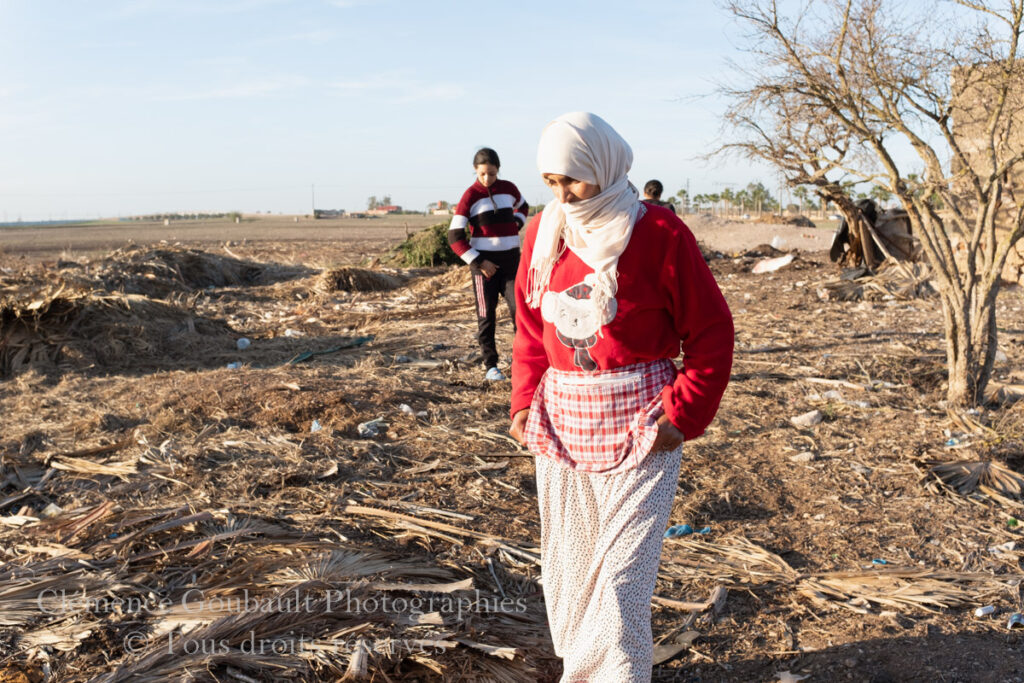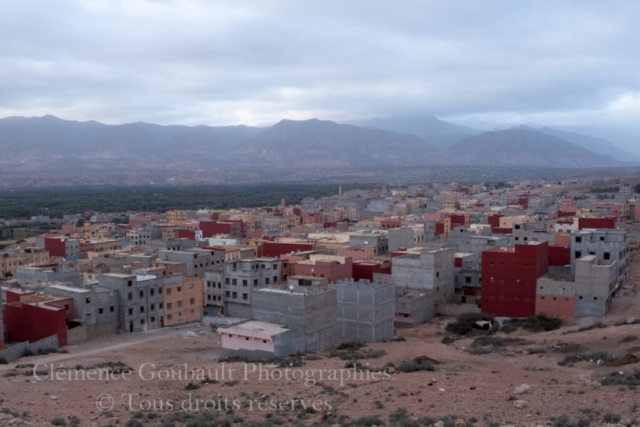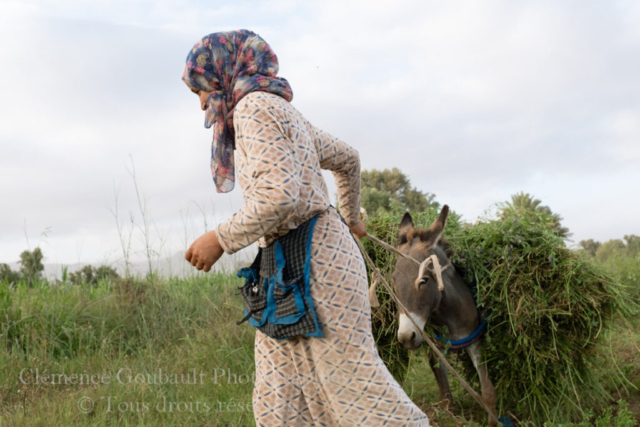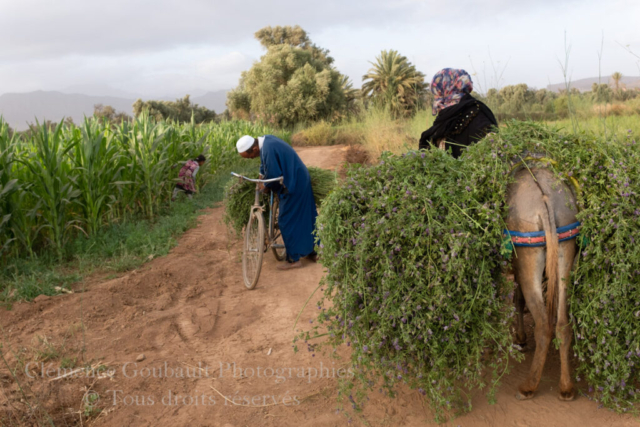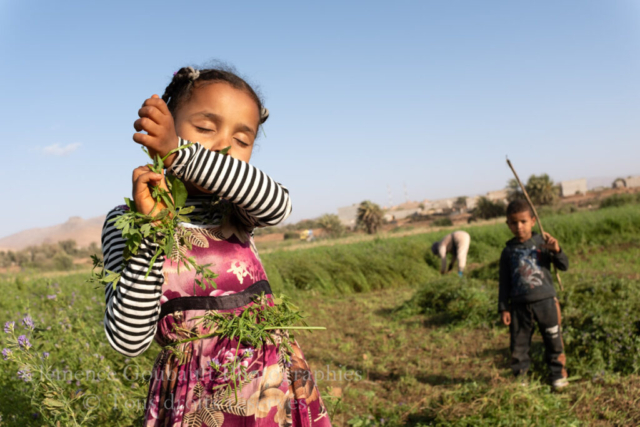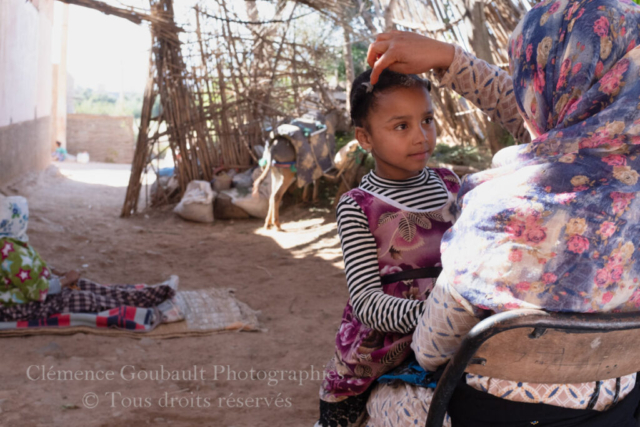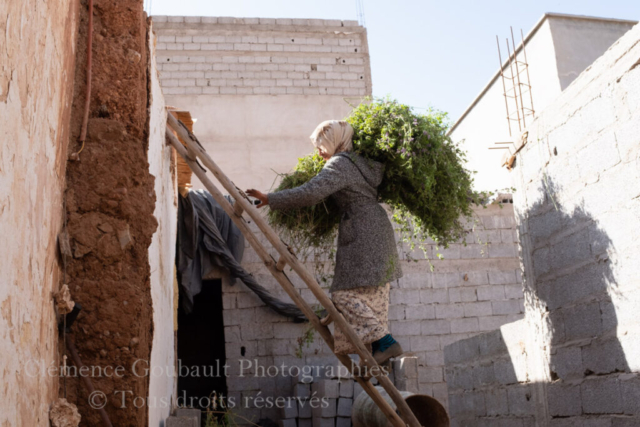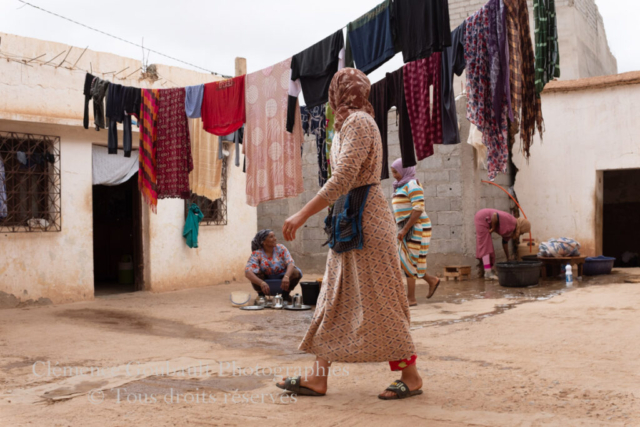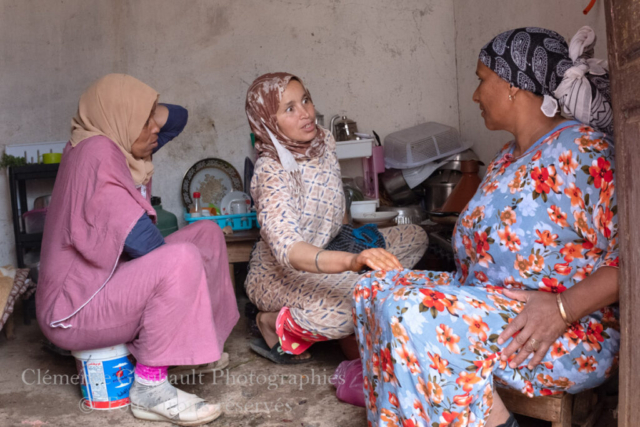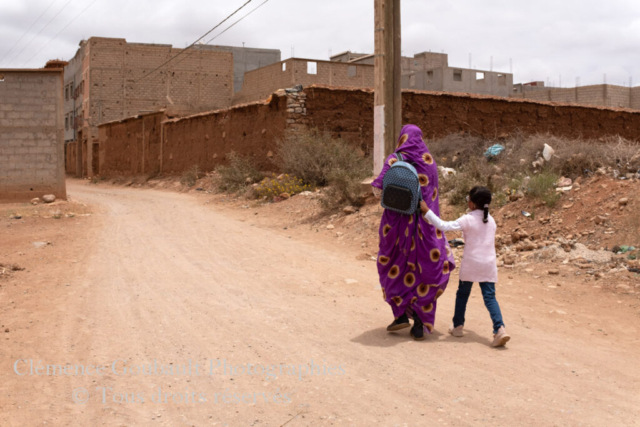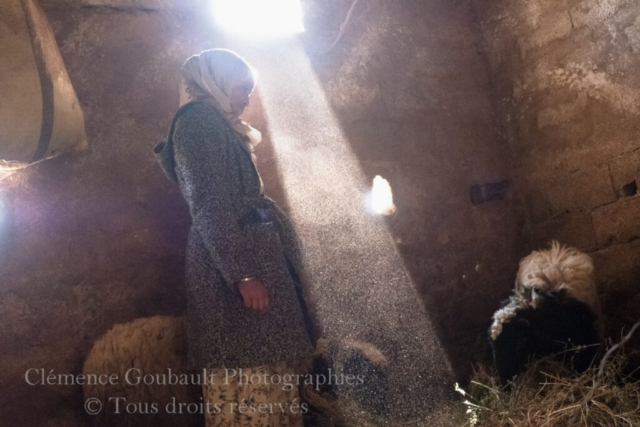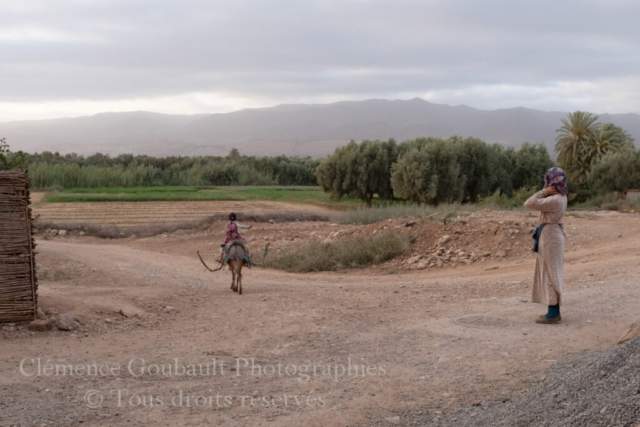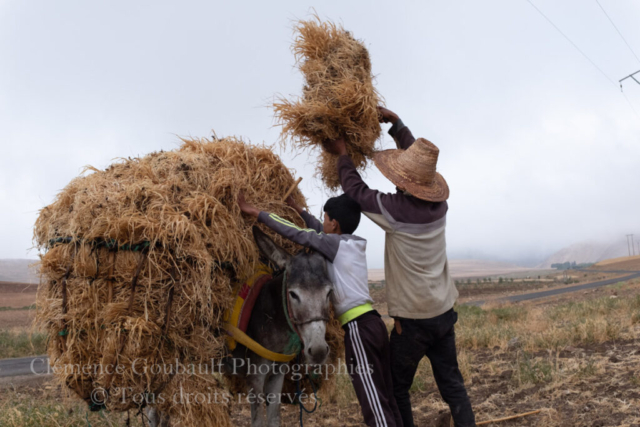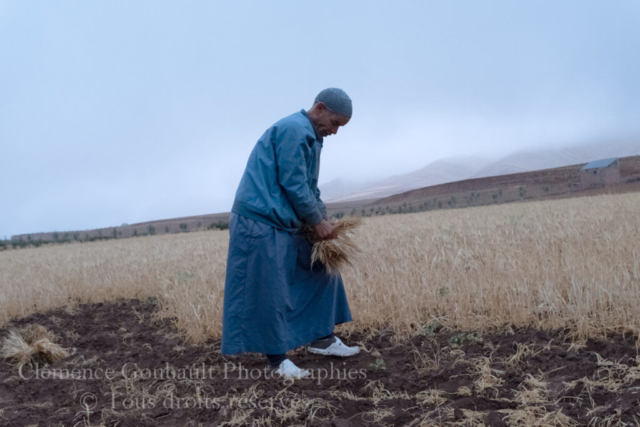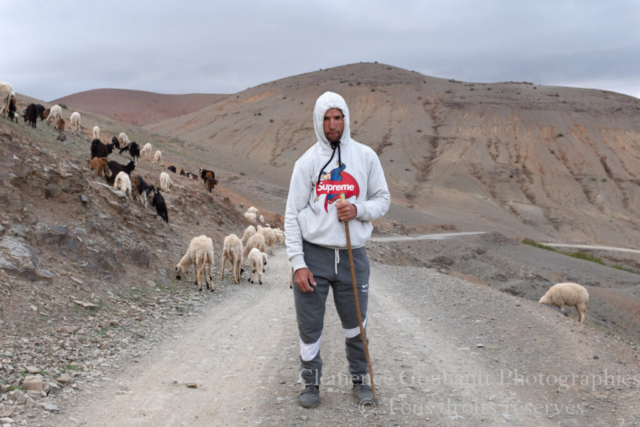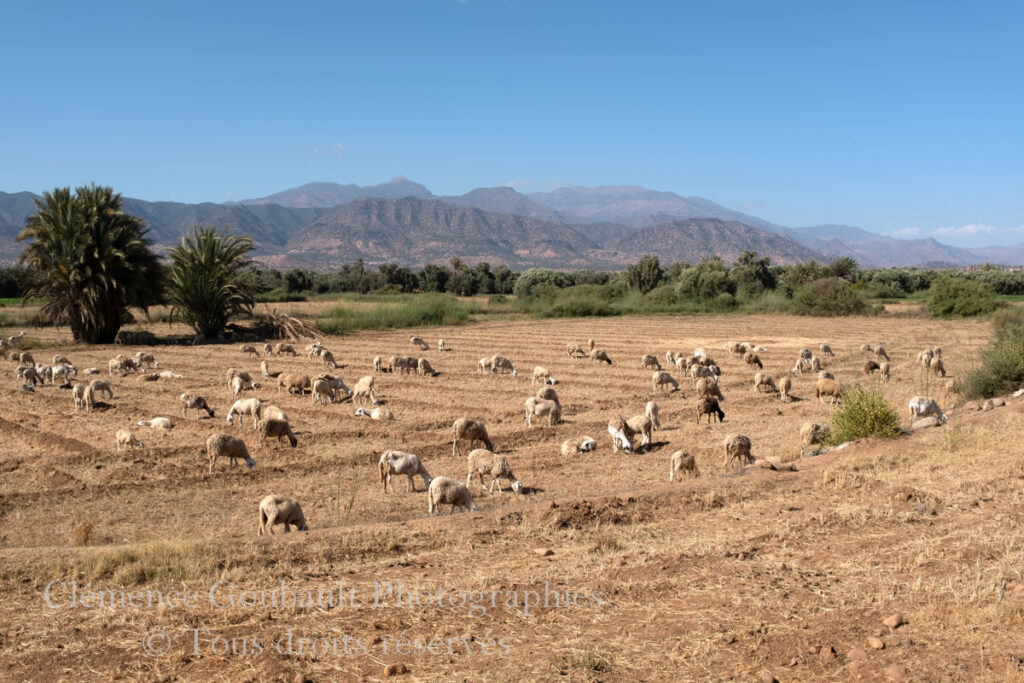
‘Akal’ in Amazigh means land. A pillar of Amazigh culture, working the land is a crucial issue for Amazigh communities in Morocco. From the Souss-Massa, to the outskirts of Berrechid, via the Kik highlands of the High Atlas, families from the High Atlas continue to pursue a way of life that is so close to their origins. However, this semi-rural lifestyle is hampered by a number of problems linked to water and territory.
In the town of Aouloz (Souss-Massa region), access to drinking water is limited for households. Families share a single access point to drinking water. Many families still use a well to collect water for domestic use. Since the earthquake in Al Haouz, many families have emigrated to the towns of the Souss-Massa region, with the result that inflation in the price of water and food has put a strain on the economic resources of the inhabitants. However, for some years now, the crops have been benefiting from a drip irrigation system that allows for fluid irrigation. Previously, crops depended on wells, but thanks to better management of the neighbouring rivers, the wells have once again become the main source of income for each family.
Aicha Id Lamine (31) arrived in Aouloz 14 years ago. Married with two children, she manages the household’s crops and livestock. Lacking the means to finance sanitation infrastructure, the family has to share drinking water resources with the neighbouring house.
On the Kik highlands (Marrakech-Safi region), since 2000, all families have their own well to irrigate their land. The lack of infrastructure restricts the use of water from each well. There is no river nearby for irrigation.
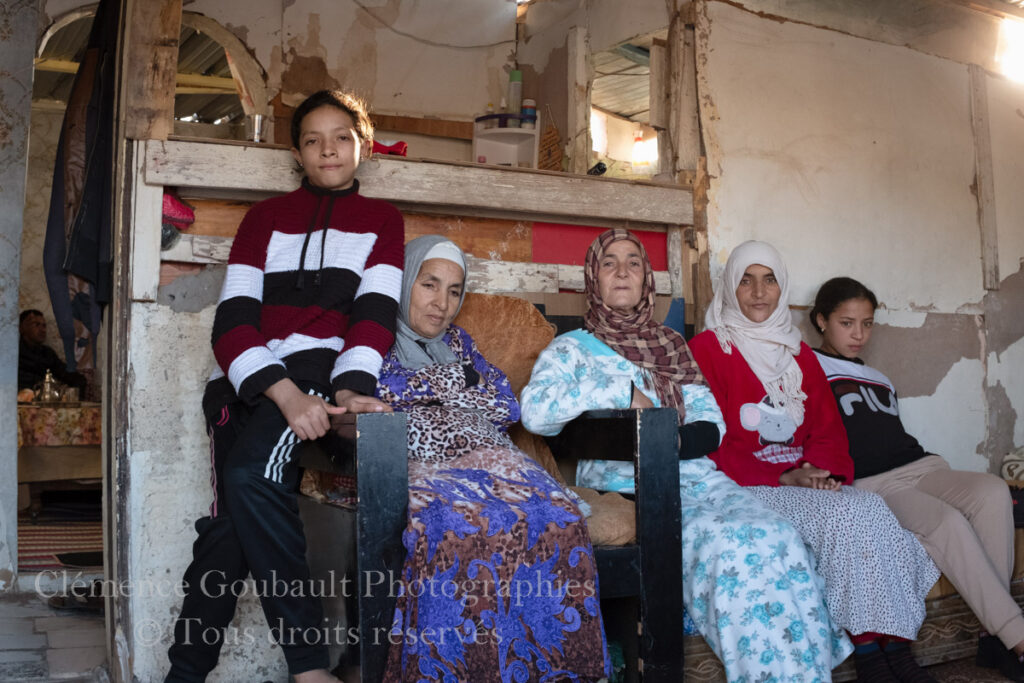
Along a road on the outskirts of Berrechid (Casablanca-Settat region) live 4 families of the Id Mansour family, originally from the douar of Tizgui ( High Atlas).
As landowners, their land has dried up and they are burdened with the accumulation of taxes. They have no access to water from the city to irrigate their land. Since 1972, they have been threatened by property developers and have no planning permission. In 2 years’ time, they will reluctantly leave and change their lives for a city lifestyle.
